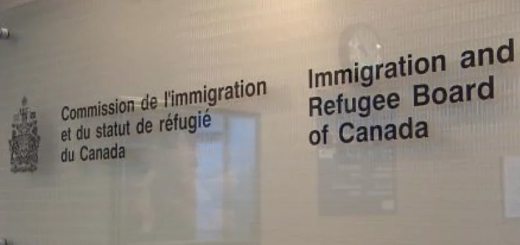Reworking Canadian Immigration Security Detention in Light of Charkaoui v Canada
The Supreme Court of Canada’s (“SCC”) decision in Charkaoui v Canada (Citizenship and Immigration), 2007 SCC 9 [Charkaoui], may represent an important turning point in Canada’s approach to national security, particularly when it is read as a strong statement in support of procedural fairness, a concept that has suffered internationally in the post-September 11 context. The SCC’s rulings with respect to secret evidence and indefinite detention without adequate and regular review are particularly significant, as they open up possibilities for challenge in other aspects of Canada’s anti-terrorism policy and practice.
By acknowledging the problems inherent in a process where counsel for the accused must mount a defence without knowledge of the case – and where judges are called upon to assume an in inquisitorial perspective in relation to secret evidence – Charkaoui represents an important blow to what Paul Copeland and Matthew Webber, counsel and agent for the appellant Mohamed Harkat, have referred to as the government’s “national security trump card.” The ruling suggests that the politics of exceptionality – where sovereign power renders aspects of the law inapplicable – associated with Canadian security activities have exceeded the limits of acceptable conduct in a democratic society.
In light of Charkaoui, Parliament has some serious work to do. By deferring the full effect of the decision for one year, the Court made an important statement about the need to balance concerns for national security with a full respect for the legal and legislative processes. An immediate striking of the violating provisions of the Immigration and Refugee Protection Act, SC 2001, c 27, would have created a climate of urgency and crisis, not unlike that surrounding the hasty drafting of the Anti-terrorism Act, SC 2001, c 41, in the immediate aftermath of the September 11 attacks. Rather than risk the effects of a hasty, politicized Parliamentary process, the Court has made it clear, through the deferral of its decision, that the issue of non-citizen security detention is serious enough to warrant careful consideration.
I want to make a few comments about what must go into the Parliamentary process that will follow from the Charkaoui decision, in addition to the more obvious concerns about representation, secrecy, and detention review.
An “Acceptable” Security Detention Procedure
While the SCC has given some clear recommendations and guidance in terms of the how and when of an acceptable security detention procedure, it has not commented on the where – the actual, carceral space where detention should take place. The Supreme Court, as the current government has been quick to point out, did not rule against the indefinite detention of non-citizens on security grounds ipso facto; rather, it made it clear that any such detention must be subject to prompt, fair, and regular review.
Indefinite detention itself does not constitute a s. 7 Charter violation, but, without regular review, the uncertainty associated with the process poses the potential for psychological stress, and therefore raises the possibility of cruel and unusual punishment. This suggests that the task before Parliament is to develop a regime where detention is accompanied by a robust review process. In addressing this matter, the issue of where detention takes place – and, as importantly, under whose jurisdiction – will have to be considered. The status quo, which I will briefly outline, is problematic.
Detention at KIHC: The Status Quo
At present, those individuals who are subject to security certificates but not released on bail are being detained at the Kingston Immigration Holding Centre (“KIHC”), on the grounds of Millhaven Correctional Facility, a federal penitentiary near Bath, Ontario. KIHC is a truly exceptional space: it is an immigration detention centre located within a prison, operated by staff of Correctional Services Canada (“CSC”), but not subject to the standard CSC mandate as defined by the Corrections and Conditional Release Act, SC 1992, c 20 [CCRA].
Technically, KIHC is under the operational jurisdiction of the Canada Border Services Agency (“CBSA”), but the day-to-day running of the facility, including the task of guarding the detainees, falls to employees of CSC. In a hearing before the Select Committee on Citizenship and Immigration, CBSA summarized this by noting that CBSA is the “operational authority,” while CSC is the “service provider.”
Analysis
This means that CSC is now involved in the detention – on the grounds of a penitentiary – of non-citizens who have not been charged with a crime, much less convicted with definite sentences of two years plus. As a criminologist, I feel the need to underscore the significance of this point. CSC is not officially mandated to take part in the detention of individuals with the legal status of the security certificate detainees. The presence of KIHC on the grounds of Millhaven represents a rupture in the normal location of CSC within the criminal justice process – in fact, it represents a departure from that process altogether, given the non-criminal status of the detainees.
We need only look south of the border to be reminded that the where and by whom decisions of non-citizen security detention are matters of no small import. If the Government of Canada decides to go through with a Parliamentary process designed to bring the IRPA in line with Charkaoui, it will have to give serious consideration to the issues of location and operating authority. If the decision is made to continue with a KIHC model, where agencies with vastly different mandates take part in the detention of certificate detainees, then the exact nature of the rules, procedures, and enabling legislation behind such a scheme will have to be made considerably more transparent.







Join the conversation